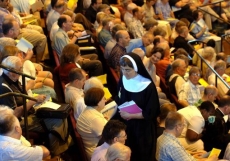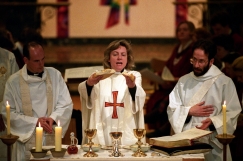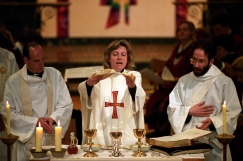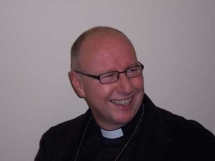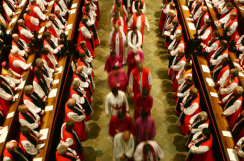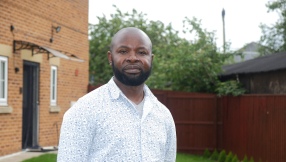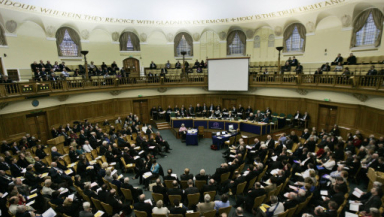
The Church of England could have its first woman bishop by Easter next year after all 43 dioceses voted in favour. Final approval is now expected in July and plans have been proposed to fast-track women bishops into the House of Lords.
Even the Chichester diocese, heartland to the most persistent opposition, voted in favour this time, along with London. They were the two dioceses that voted against in the previous abortive attempt to get the measure through the Church's complex legislative process.
The new, simplified measure will require a two-thirds majority at General Synod in York in July and although it is unlikely to affect the final result, there is continuing concern that even after the dismay caused by the previous vote, a mere 60 per cent of Chichester's clergy backed the legislation.
Women and the Church (WATCH) said they were "delighted and hugely encouraged" by the "overwhelming support" given by 100 per cent of diocesan synods for the legislation.
"Such a resounding endorsement, including from the dioceses of London and Chichester which votes against last time, gives us significant hope and encouragement for the final vote at General Synod in July," said chair Hilary Cotton. "This is really, really good news in the lead-up to the final approval vote. In most dioceses, over 90 per cent of votes were cast in favour: surely General Synod cannot turn their backs on this again?"
The Bishop of Rochester, the Right Rev James Langstaff, who chairs the legislation' steering committee, said: "The dioceses have now expressed their view very clearly and the matter now comes back to General Synod in July. I pray that the synod will continue to approach this decision in a prayerful and generous way as we move towards voting on the proposal that women may be bishops in the Church of England."
The 44th diocese, the Diocese in Europe, was unable to convene a meeting within the three month period allowed for the vote in the present fast-track process.
Although the legislation last time, now replaced by a simpler measure, was tortuous and labyrinthine, and arguably not fit for purpose, its rejection by the synod's House of Laity by a narrow margin caused wide dismay both inside and outside the Church. It created an image of a Church shot through with archaic prejudice and misogyny, giving it a PR problem from which it could still take years to recover. The sense of an institution locked in an historic mindset that ignored the secular imperatives of the modern world has been perpetuated by the Church's attitude to gay marriage.
Even senior clergy are beginning to grasp the problem its historic obduracy on sexuality, as well as women, presents for evangelisation, particularly among the young. The Dean of York, the Very Rev Vivienne Faull, said in a recent interview with Radio Times that offering a blessing for gay couples was "not theologically a problem" and called on the Church to revise it position.
Arguing for a better understanding of the context in the wider world, she drew a comparison between the attitude on gay marriage and women bishops.
"I think it is very costly to the Church that women have not been able to be bishops till now - and this is also going to be costly. I'm getting approached by young people of the same gender planning their marriages. They understand in their heads what the Church's position is, but they no longer understand in their hearts. It's driving people away and that's dreadful."
The legislation bars the established Church from conducting gay marriages.
Recently the House of Bishops issued new guidelines stating: "It would not be appropriate conduct for someone in holy orders to enter into a same-sex marriage, given the need for clergy to model the Church's teaching in their lives." Many bishops privately acknowledge that these guidelines have been badly received. They have perpetuated the image of an institution riddled with unacceptable judgmentalism and unhealthily obsessed with what takes place behind the bedroom door.
The Church came to its senses on women bishops after a public outcry which followed the previous vote. An internal document warning of a "major constitutional crisis" was leaked to The Times and became public.
On this question, the evidence is that the Church has at last woken up and "smelled the coffee". Traditionalists are not to excluded but, unlike with gay marriage where even liberal clergy are barred, they are allowed freedom to follow their conscience.










